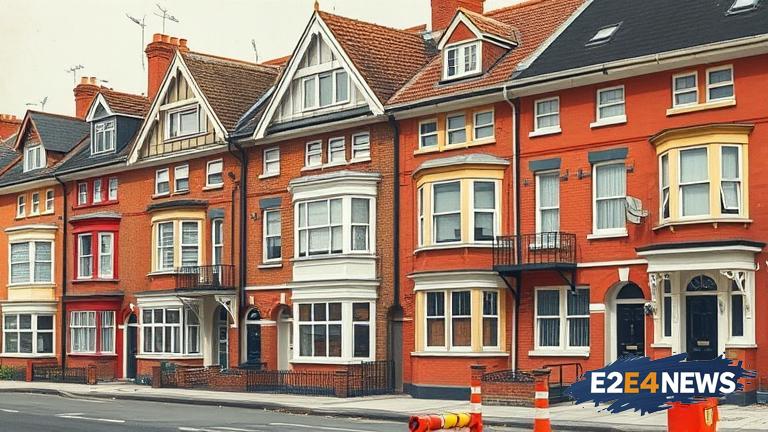A recent investigation has uncovered a shocking trend in social housing, where wealthy tenants are taking advantage of subsidized housing meant for low-income families. The scandal has sparked widespread outrage and raised questions about the effectiveness of the social housing system. According to tenant reviews and data analysis, many high-income individuals are occupying social housing units, leaving vulnerable families and individuals without access to affordable housing. The investigation found that some tenants had incomes exceeding $100,000 per year, yet were still receiving subsidized housing. This has led to accusations of abuse and exploitation of the system. The social housing system is designed to provide affordable housing to those in need, but it appears that some individuals are taking advantage of the system for personal gain. The investigation also revealed that some tenants were using social housing as a means to accumulate wealth, rather than as a last resort. This has sparked calls for reform and stricter eligibility criteria for social housing. Many are arguing that the system needs to be overhauled to ensure that those who truly need assistance are receiving it. The scandal has also highlighted the need for greater transparency and accountability in the social housing sector. As the investigation continues, it is likely that more cases of abuse will come to light, further fueling the debate about the future of social housing. The government has announced plans to review the social housing system and implement reforms to prevent similar abuses in the future. However, critics argue that more needs to be done to address the root causes of the problem. The social housing scandal has also raised questions about the role of government in providing affordable housing and the need for alternative solutions. Some are advocating for a more market-based approach, while others argue that the government needs to take a more active role in providing affordable housing. As the debate continues, one thing is clear: the social housing system is in need of reform. The investigation has shed light on a systemic problem that requires a comprehensive solution. The government, policymakers, and stakeholders must work together to create a more equitable and effective social housing system. This will require a thorough review of the current system, as well as the implementation of new policies and procedures to prevent abuse and ensure that those in need are receiving assistance. The social housing scandal is a wake-up call for policymakers and stakeholders to take action and create a more just and equitable system. It is a complex issue that requires a multifaceted solution, but with the right approach, it is possible to create a social housing system that truly serves those in need. The investigation has also highlighted the importance of tenant reviews and data analysis in identifying and addressing systemic problems. By analyzing data and listening to tenant feedback, policymakers and stakeholders can gain a better understanding of the issues and develop targeted solutions. This approach can help to identify areas of abuse and inefficiency, allowing for more effective allocation of resources. Ultimately, the social housing scandal is a reminder that the system is only as strong as its weakest link. By addressing the root causes of the problem and implementing reforms, it is possible to create a more effective and equitable social housing system. The future of social housing depends on the ability of policymakers and stakeholders to work together to create a system that truly serves those in need.
